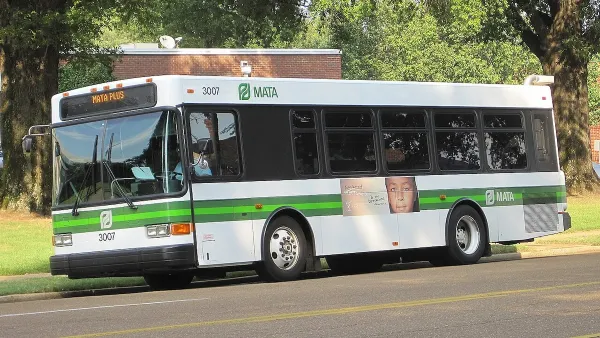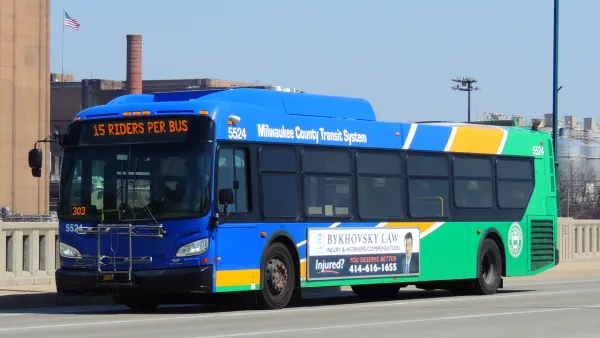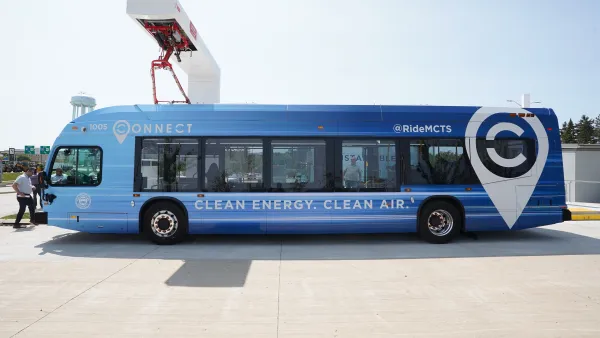Buses in the Milwaukee County Transit System now reach 1,300 fewer employers than it did in 2001 thanks to state budget cuts.
"Despite growing numbers of jobs located outside of Milwaukee’s central city, many neighborhood residents continue to be unable to reach potential employers by bus," according to a post by Matthew Isla.
To sum up the problem, Isla writes: "State budget cuts have severely hampered Milwaukee County Transit System’s ability to connect city residents with outlying jobs."
Specifically, on the subject of budgets, "[the] MCTS says it has reduced bus service 14.5 percent since 2000 in response to successive rounds of state budget cuts. The most recent cut came in the 2011 biannual budget when the MCTS state appropriation was slashed by 10 percent. Although about 4 percent of the funding was restored in a later budget, MCTS is currently operating under an approximate $4.1 million shortfall in state money compared to the 2009 budget."
As for the potential that planners are regrouping to develop a more efficient system "[c]urrently there is no long-range planning taking place at MCTS to reverse trends in service cutbacks and meet the needs of job holders and job hunters for the long term."
FULL STORY: Why City Workers Can’t Get to Suburban Jobs

National Parks Layoffs Will Cause Communities to Lose Billions
Thousands of essential park workers were laid off this week, just before the busy spring break season.

Retro-silient?: America’s First “Eco-burb,” The Woodlands Turns 50
A master-planned community north of Houston offers lessons on green infrastructure and resilient design, but falls short of its founder’s lofty affordability and walkability goals.

Delivering for America Plan Will Downgrade Mail Service in at Least 49.5 Percent of Zip Codes
Republican and Democrat lawmakers criticize the plan for its disproportionate negative impact on rural communities.

Test News Post 1
This is a summary

Test News Headline 46
Test for the image on the front page.

Balancing Bombs and Butterflies: How the National Guard Protects a Rare Species
The National Guard at Fort Indiantown Gap uses GIS technology and land management strategies to balance military training with conservation efforts, ensuring the survival of the rare eastern regal fritillary butterfly.
Urban Design for Planners 1: Software Tools
This six-course series explores essential urban design concepts using open source software and equips planners with the tools they need to participate fully in the urban design process.
Planning for Universal Design
Learn the tools for implementing Universal Design in planning regulations.
EMC Planning Group, Inc.
Planetizen
Planetizen
Mpact (formerly Rail~Volution)
Great Falls Development Authority, Inc.
HUDs Office of Policy Development and Research
NYU Wagner Graduate School of Public Service





























